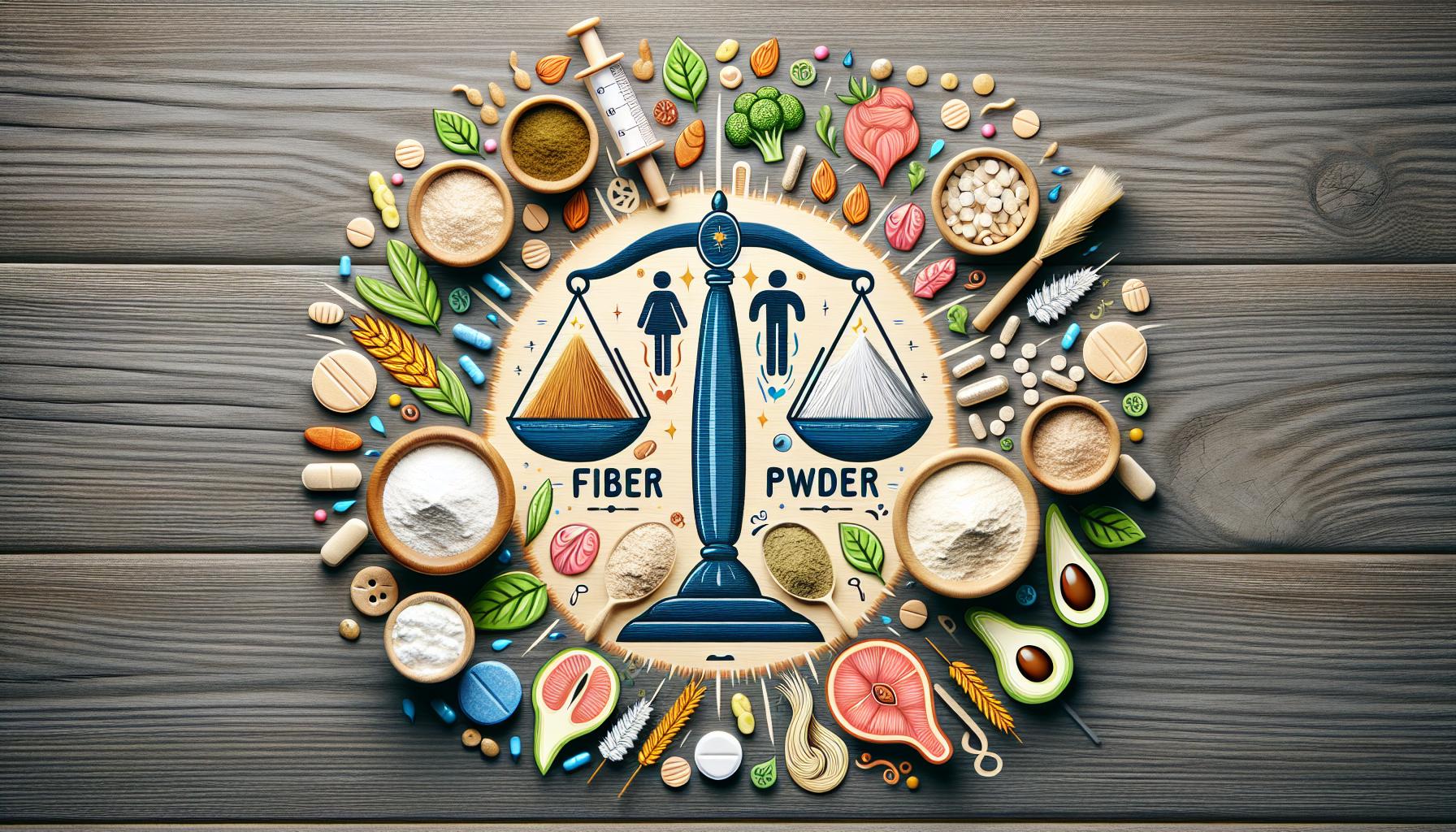
Introductory Passage
When contemplating “which is better, fiber pills or powder,” there’s no one-size-fits-all answer. In essence, both bring their own unique benefits to the table and are designed to address different needs and lifestyle factors. While fiber pills can offer convenience and a fixed dose, powder equivalents boast flexibility and ease of blending into our favorite drinks and meals. This article will dive into the particular benefits and drawbacks of each product type, helping you make an informed decision on your fiber journey.
Which Is Better Fiber Pills Or Powder?
The choice between fiber pills and powder depends on personal preference and lifestyle needs. Powdered fiber supplements can be more easily adjusted for dosage and mixed with foods or beverages, offering a potentially faster effect due to quicker dissolution. Pills are more convenient and portable, suitable for those who prefer not to taste the supplement or have difficulty incorporating powders into their diet. Both forms are effective for increasing fiber intake; the best option is the one that best fits your daily routine and adherence.
Fiber Pills: A Pillar of Convenience
For those constantly on the go or who dislike the texture of fiber powders, fiber pills can be a lifesaver. Compact, portable, and easy to take, these tiny titans of fiber intake offer a simple and straightforward method for individuals striving to hit their daily recommendations. However, as life isn’t always smooth sailing, there are also a few choppy waves to consider when opting for fiber pills.
The Brassy Bumps of Fiber Pills
While fiber pills may be convenient, they tend to offer lower amounts of fiber per serving compared to their powdered counterparts. This means you could find yourself swallowing a handful of pills to achieve your daily fiber quota, which isn’t everyone’s cup of tea. Furthermore, fiber pills often come with a higher price tag, making them a pricier option in the long run.
Fanciful Flexibility with Fiber Powder
Meanwhile, fiber powders woo with their wonderful flexibility. The ability to determine your own dosage and mix it into a variety of foods and drinks is the ace up the powder’s sleeve. Whether sprinkled on top of a salad or mixed into a morning smoothie, its versatility adds fiber to your diet without altering your preferred food and drink choices.
The Potential Pitfalls of Powder
Then again, not everything shines when it comes to using powder. For starters, fiber powders generally require a bit more prep time: measuring the right dose, mixing it into a food or beverage—all this takes time. Another point of consideration is the texture that fiber powder can add to drinks and meals, which might be off-putting to some individuals.
The Tale of Two Fibers
With their respective ups and downs, the choice between fiber pills and powder significantly hinges on personal preference and lifestyle. For the busy bee who likes things clear-cut and transportable, fiber pills may take the cake. Meanwhile, those who relish dynamic usability might find fiber powders a match made in heaven.
The Fiber Fable: Find Your Fit
Ultimately, your decision should steer towards whichever option helps you reach your daily fiber intake in the most consistent and pleasurable manner. That said, no matter which path you walk—pills or powder—remember that these supplements are just that: a supplement to healthy eating and lifestyle habits. There’s no pill or powder that can replace a diet rich in fiber-filled fruits, vegetables, and whole grains.
Wrapping it Up
To surmise, the fiber pill versus powder debate is a personal one. Whether you opt for easy-to-swallow pills or the blend-friendly powder, the crucial factor is finding the form that seamlessly complements your lifestyle and boosts your overall dietary fiber intake. Gaining that much-needed fiber is the goal, and with a plethora of options out there, you’re sure to find your fit.
Frequently Asked Questions
1. How much fiber is in pills versus powder?
While it can vary, fiber pills generally offer a smaller amount of fiber per serving when compared to powders. However, reading the labels will provide the most accurate information as it can differ among brands and types.
2. Can I take fiber pills and powder together?
Yes, however, it’s crucial to ensure you do not exceed the recommended daily dose of fiber intake. Make sure to consult your healthcare provider to adjust your dosage correctly.
3. Are there side effects to taking fiber supplements?
Yes, like any supplements, fiber pills or powders can cause side effects such as bloating, cramping, or gas. If you experience persistent or severe symptoms, seek medical advice.
4. Should I drink lots of water with fiber supplements?
Absolutely! Drinking plenty of fluids can help fiber do its job more effectively and reduce any potential side effects.
5. Can fiber supplements replace a healthy diet?
No, fiber supplements are designed to complement and boost your fiber intake, not replace fiber-rich foods like fruits, vegetables, and whole grains.

